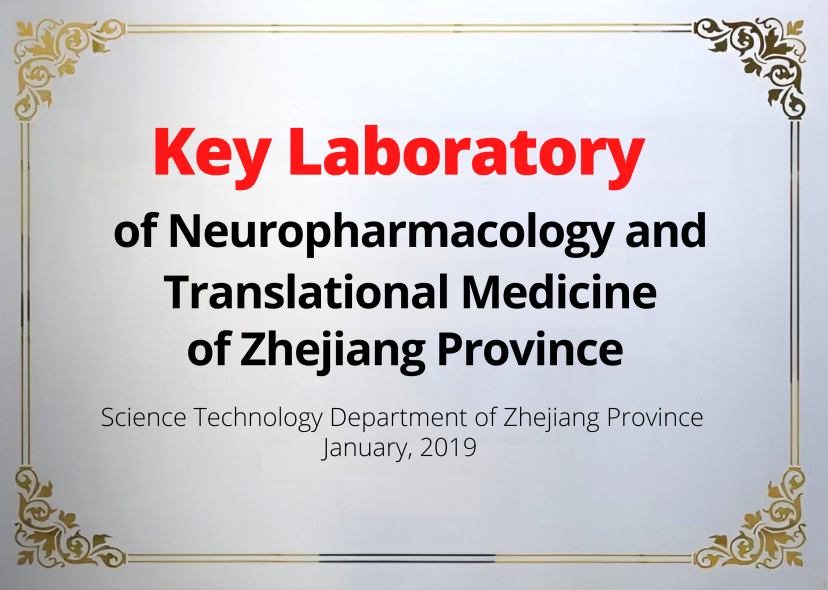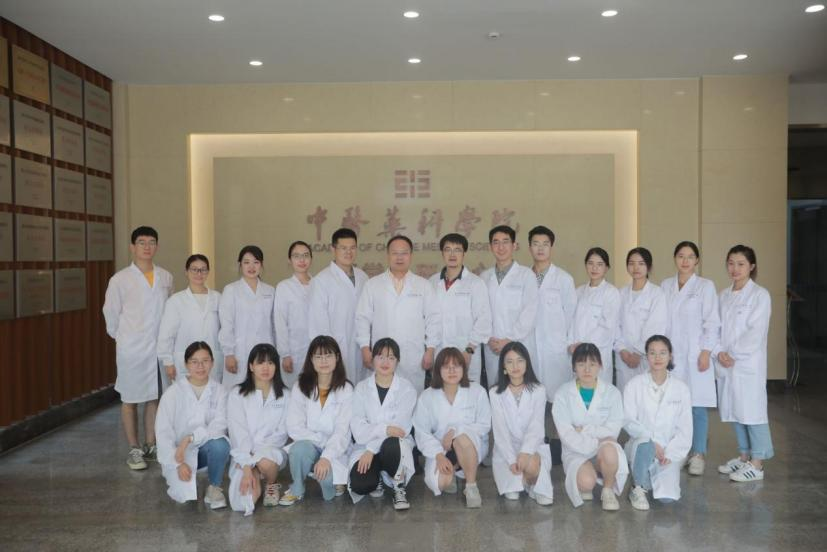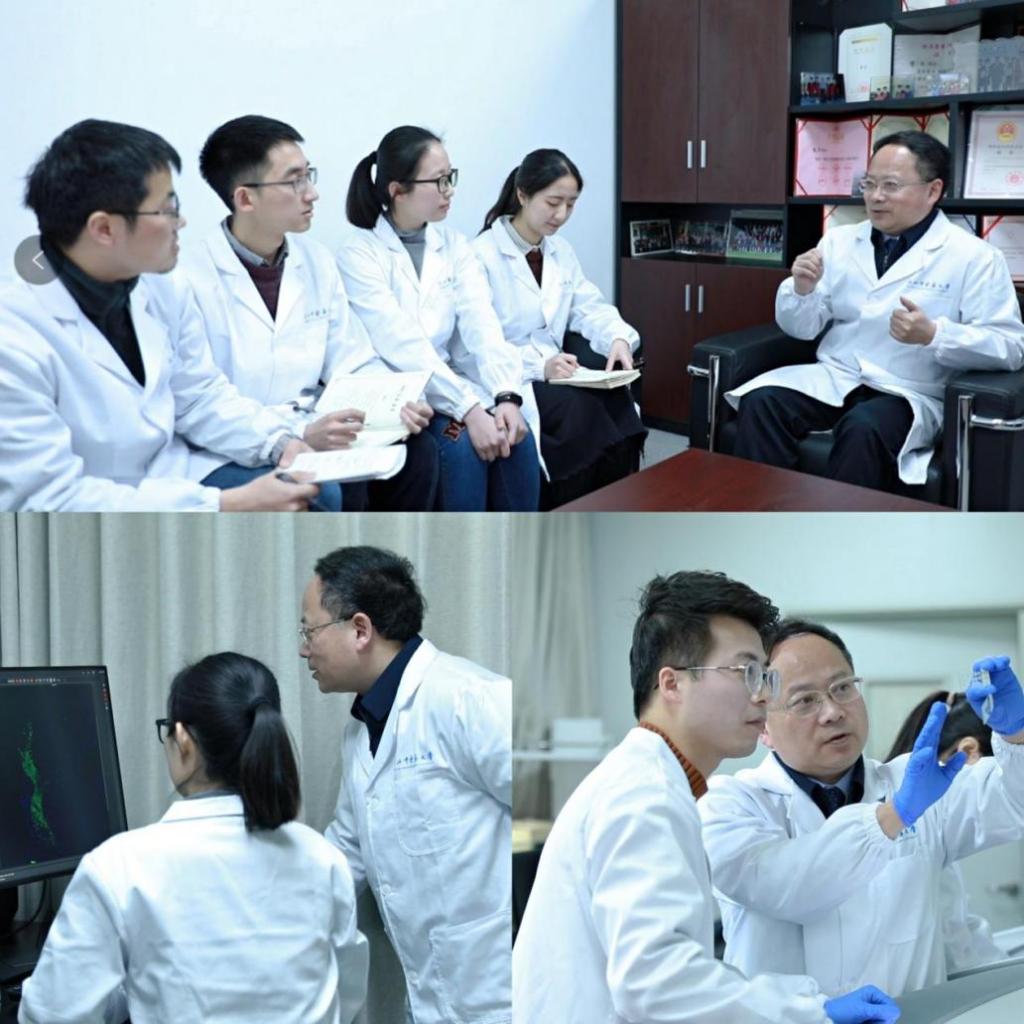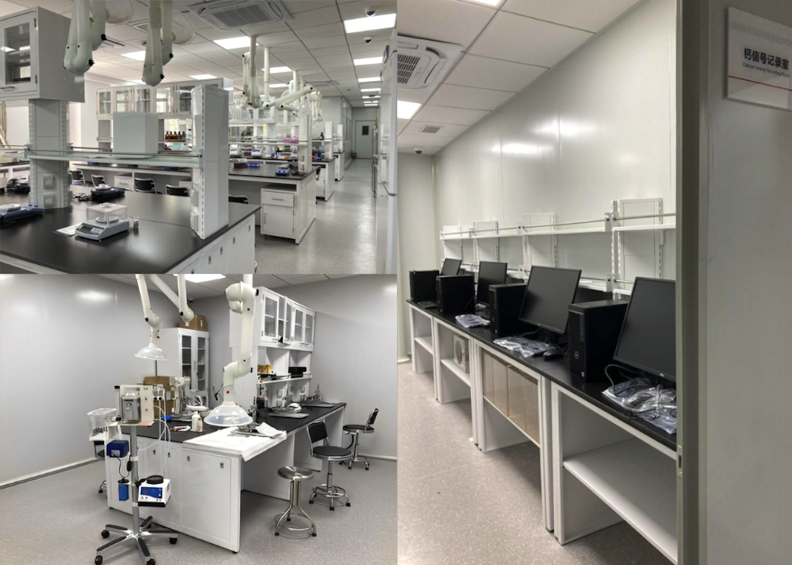Overview
The Key Laboratory of Neuropharmacology and Translational Medicine of Zhejiang Province is an interdisciplinary platform for basic and transformative research approved by the Science Technology Department of Zhejiang Province in 2021. As a pioneer of neuropharmacology and translational medicine, the Laboratory provides a cooperation platform for researchers with scientific and technological innovation resources in Zhejiang.


Research Directions
The Laboratory focuses on dissecting the pathogenesis mechanisms of severe brain disorders and discovering potential therapeutic targets based on integrated Chinese and Western medicine, mainly in three aspects:
(1) Neuropharmacological research of crucial neurotransmitters such as histamine and its receptors in the brain: The Laboratory systematically elucidates the structure and function of histaminergic circuits and receptors in the brain by advanced neuroscience technology, clarifies their roles in brain disorders, and explores new targets for modulating histaminergic neural circuits and related lead compounds based on integrated Chinese and Western medicine;
(2) Pathogenesis mechanisms and potential therapeutic targets of severe brain disorders: By advanced neuropharmacological and other multidisciplinary technologies, the Laboratory systematically dissects the mechanisms of severe brain diseases, including epilepsy, drug addiction and depression at the molecular, cellular and neural circuit levels. It especially focuses on the early occurrence and development of diseases, and potential drug targets;
(3) Action mechanisms of prevention and treatment of chronic brain disorders with TCM: The Laboratory aims to impel the translation significance and industrialization of TCM formulations.
Research Staff
There are 33 researchers in the Laboratory, with Prof. Chen Zhong as the director, Prof. Liu Jinggen and Prof. Li Fanzhu as academic leaders, and Research Fellow Yi Wang as Deputy Director. The team’s expertise covers broad fields such as neuropharmacology, pharmaceutics, TCM, neurology, clinical pharmacology, experimental zoology, bioinformatics and molecular biology.

Prof. Chen, a PhD and Principal Investigator, is President of ZCMU, Cheung Kong Scholar & Professor of Ministry of Education of P.R. China, and recipient of the National Science Fund for Distinguished Young Scholars. He obtained a doctorate degree of pharmacology in Okayama University, Japan, in 1999 and was a distinguished professor at Zhejiang University. He was promoted to professor and Ph.D. supervisor in 2002. He was also a visiting scholar at Tohoku University, Japan, the University of Pennsylvania, USA, and the University of Toronto, Canada.
Prof. Chen’s research mainly focuses on two fields in neuropharmacology: (1) Neural circuit basis and molecular mechanisms of epileptic pathogenesis, and the development of antiepileptic drugs; (2) Roles of histamine and histamine receptors in neurological disorders and the involvement of autophagy.
Prof. Chen has conducted more than 10 projects of the National Natural Science Foundation of China and an NIH RO1 project. He has published over 300 papers with representative publications in high-impact journals such as Nature Neuroscience, Nature Nanotechnology, Nature Communications, Annals of Neurology, Science Advances, Angewanbdte Chemie-International Edition, Autophagy, Pharmacology & Therapeutics, and Progress in Neurobiology. He has also received many awards, including the first prize of the Natural Science Award of MOE (2017, 1/7), first prize of the Natural Science Award of Zhejiang Province (2015, 1/5), second prize of the National Science and Technology Progress Award (2008, 5/10) and CNPHARS-Serveir Young Investigator Award in Pharmacology. Moreover, he was approved six patents by the China National Intellectual Administration.
Projects and Cooperation
As a platform for domestic and international research cooperation and academic communication, the Laboratory has carried out extensive exchanges with world-famous universities, such as Okayama University of Japan, University of Macau, Zhejiang University, etc. The Laboratory team has undertaken more than 40 national projects, including 4 Key Program projects of the National Natural Science Foundation of China, 3 projects of National Key R&D Programs, 6 projects of the National Basic Research Program(973 Program) and National Science Fund for Distinguished Young Scholars. Representative research results have been published in distinguished journals, including Neuron (Highlight with Video Abstract), Nature Communications, Nature Nanotechnology, Annals of Neurology, Molecular Psychiatry, Biology Psychiatry (Cover Paper), the Journal of Experimental Medicine, Cell Research, the Journal of Cell Biology and Pharmacology & Therapeutics, and 10 papers have been recommended by F1000.

Equipment
With a total area of 2,400 square meters, the Laboratory is equipped with advanced experimental instruments with a total value of more than 22 million RMB, including a virtual digital slice scanning system, freezing microtomes, small animal in vivo imaging system, in vivo single unit electrophysiology recording system, patch-clamp system, small animal metabolism monitoring system, multi-channel EEG recording system, laser doppler flowmeter, upright and inverted fluorescence microscopes, various delicate animal behavioral instruments. The laboratory research team acquires multiple advanced neuropharmacological technologies such as optogenetics, chemogenetics, genetic interference, neural circuits tracing, optical imaging electrophysiological recording, functional brain imaging, animal behavior and polymer materials science.
